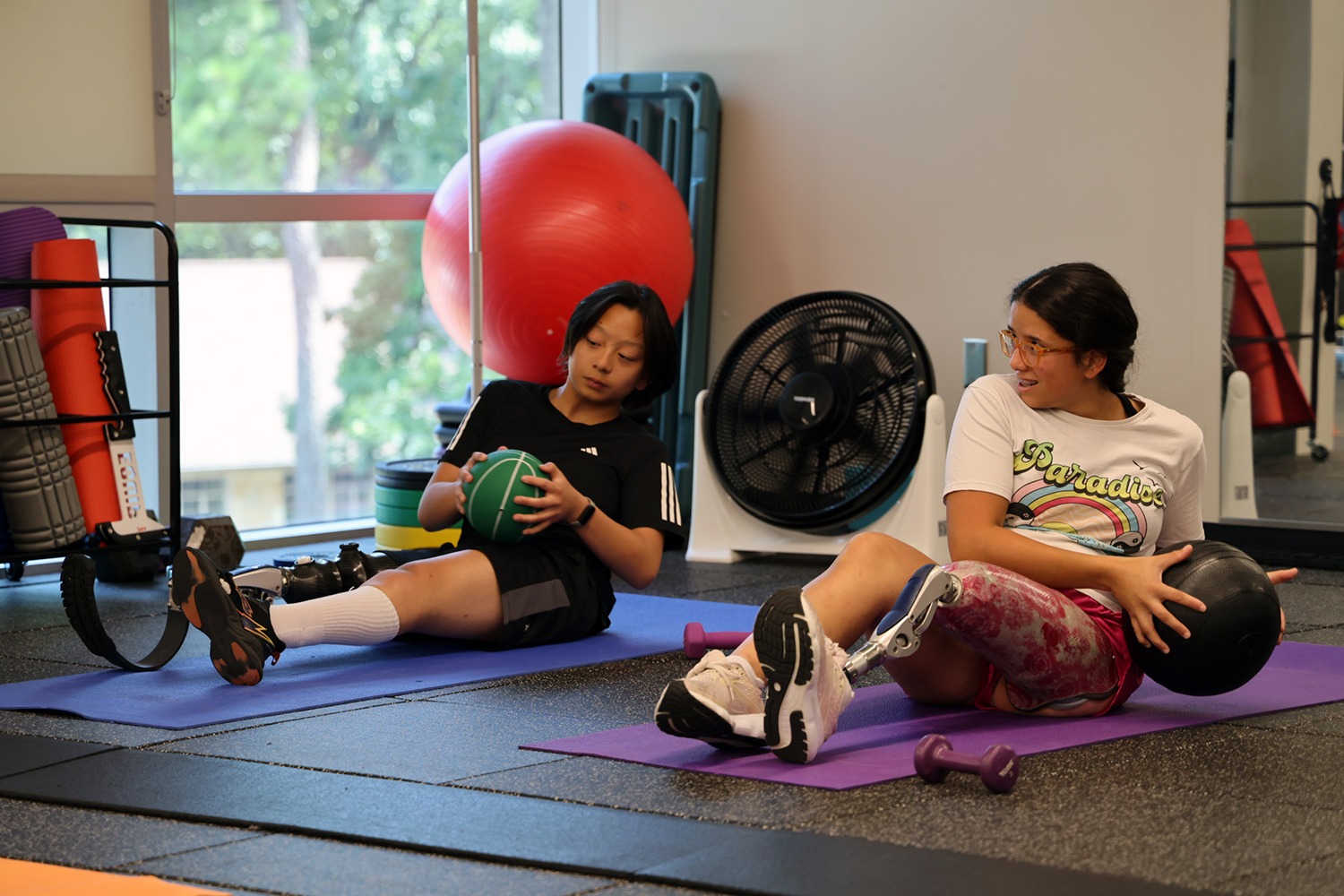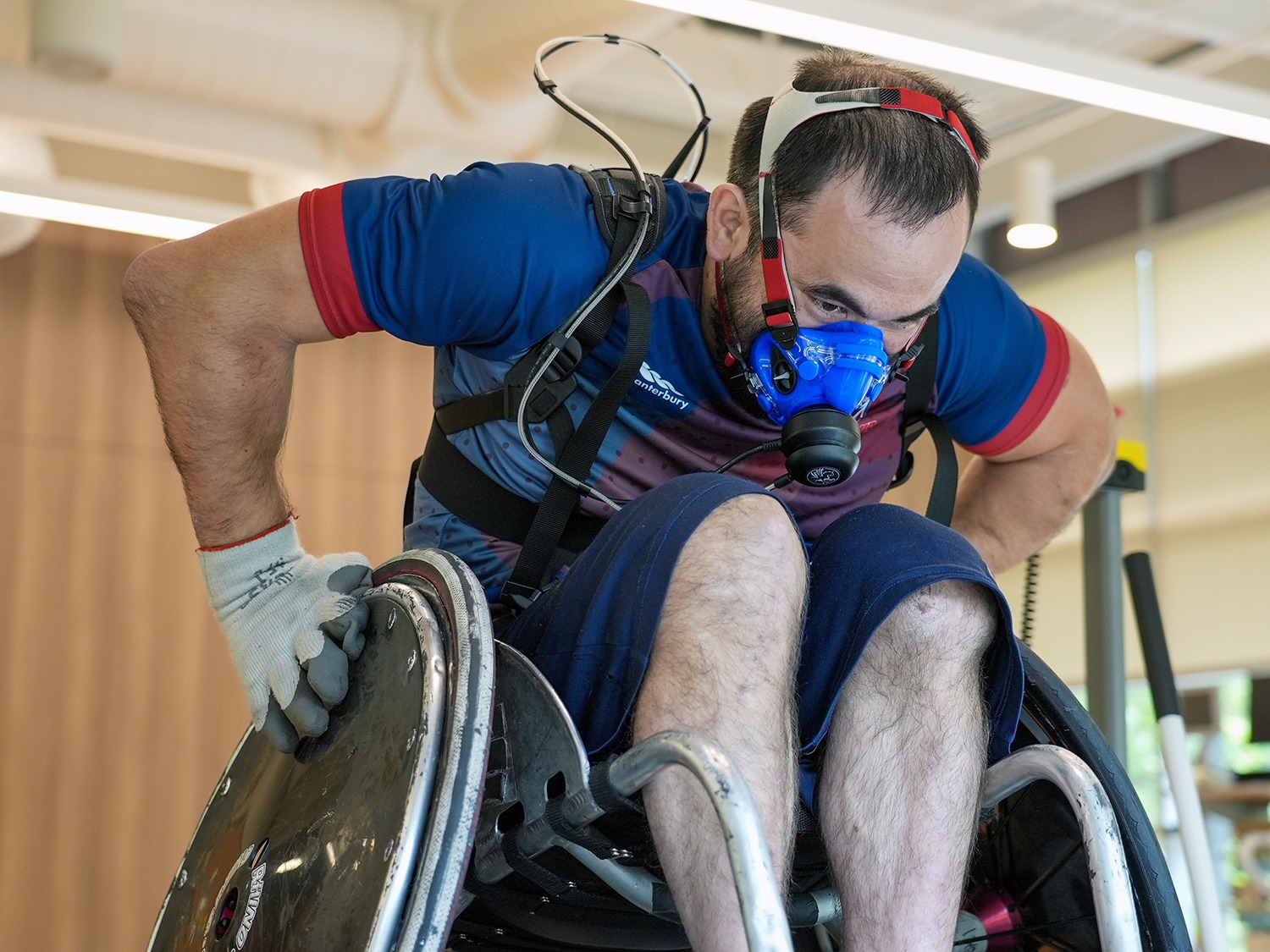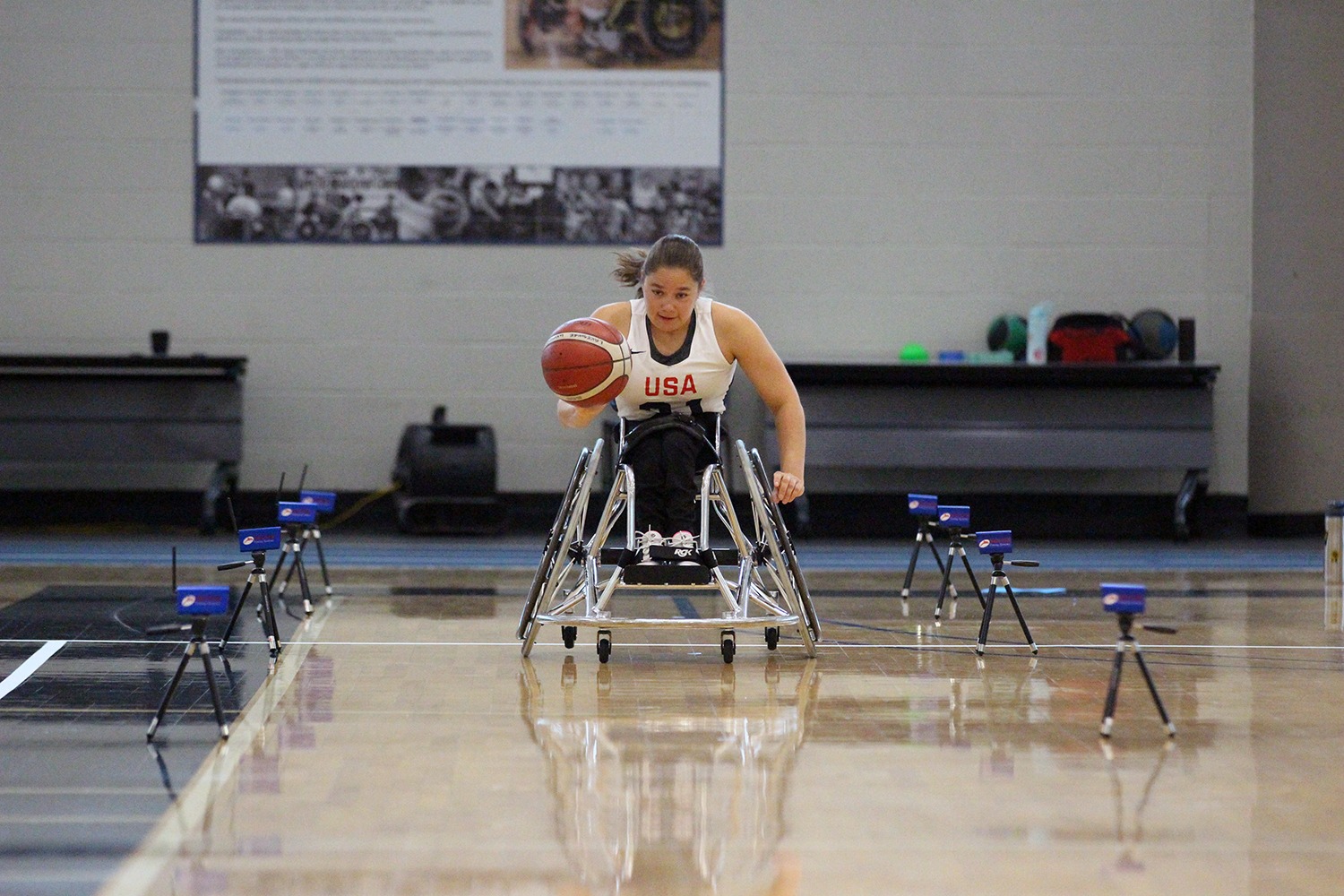Lakeshore Foundation Launches First-of-Its-Kind High-Performance Center
By Kelly Bonner/Director of Sports Science and Performance Center
If you’re passionate about adapted sports, chances are you’ve heard of the Lakeshore Foundation in Birmingham, Ala. Perhaps you’ve even visited, especially if you play wheelchair basketball or rugby, or attended The Hartford Nationals in 2023 or 2024.
For over four decades, Lakeshore Foundation has stood as a leader in adaptive sports. Since introducing Birmingham’s first wheelchair basketball team in 1984, Lakeshore has grown to offer 12 competitive sports and 92 aquatic, fitness and recreation programs. As both an Olympic and Paralympic training site, Lakeshore serves more than 4,000 individuals annually and is home to USA Wheelchair Rugby, Boccia United States and U.S. para powerlifting — each a National Governing Body in its respective discipline.

A Game-Changing Facility
In 2024, Lakeshore advanced its mission by launching the Sports Science and Performance Center (SSPC), a groundbreaking facility that’s the first of its kind: a fully accessible, high-performance center built on data and research, designed to break down barriers for athletes with disabilities.
Until now, athletes in adaptive sports lacked access to elite-level training environments and the resources needed to elevate their performance. The SSPC changes that reality. The center offers cutting-edge sports science, advanced performance testing, data-driven insights, personalized nutrition and mental performance coaching. Here, the guiding principle is clear: There are no limits to what athletes with disabilities can accomplish. At SSPC, “It’s Always Training Season” — whether you’re working toward a high school championship or the Paralympic podium.
Built on Athlete Input
The center’s creation began with listening to athletes. In 2023, All In Sport Consulting conducted a comprehensive needs assessment and SWOT (strategic planning) analysis to better understand what athletes with disabilities require. The top three services requested were strength and conditioning, nutrition and mental training.

Lakeshore responded by prioritizing these services, along with others such as VO2 max testing, flexibility and range of motion assessments, cardio training and goal-setting. By creatively reimagining their spaces and securing funding through a dedicated research endowment, Lakeshore brought their vision to life. The result: a state-of-the-art center that addresses the shortage of high-quality training for athletes with disabilities, especially Paralympians, empowering them to compete at the highest levels.
Making an Impact
SSPC’s athlete-focused and inclusive approach is already making a difference, inspiring a shift in the culture of adaptive sports. The center has become a valuable resource for collegiate adaptive sports programs, with athletes from the University of Arizona, San Diego State, the University of Alabama, the University of Illinois and the University of Washington benefiting from SSPC’s testing and services. As only 23 U.S. colleges currently offer adaptive sports, SSPC is pioneering access to high-performance support for student-athletes who often fall outside NCAA recognition.
Removing Barriers to Access
Accessibility and affordability remain top priorities.
“From the start, we knew that cost and transportation could be obstacles for many athletes, so we’re doing everything possible to address those barriers,” says Amy Rauworth, chief research and innovation officer at Lakeshore.
The numbers speak for themselves. Over 82% of athletes who have used SSPC services have received financial assistance. Lakeshore offers three levels of scholarships, awarded quarterly, and proactively seeks grants and outside funding to extend access. Notably, in 2025 Lakeshore secured a Department of Veterans Affairs grant to fully support veteran athletes classified as VMAA (Veteran Monthly Allowance Athletes), covering travel, accommodations, comprehensive testing and 12 weeks of virtual follow-up services.
Beyond Birmingham
Virtual services are a cornerstone of SSPC’s model, providing support in sports nutrition, mental performance and strength and conditioning.
“We didn’t want to simply hand over test results without offering athletes the resources to improve, and we know Birmingham isn’t local for most people,” Rauworth says.

To date, athletes from Florida to Washington and California to New York have received in-person testing and virtual coaching in their chosen focus areas. This approach ensures that location is no longer a barrier to accessing elite-level training support.
Bridging the Gap
With the Los Angeles 2028 Paralympic Games on the horizon, demand for high-level adaptive athlete support is growing. Yet there remains a significant gap between junior and elite international competition for many athletes. As highlighted in a recent article from The Guardian on U.S. Para Track and Field, Paralympian Amanda McGrory summed up the challenge: “We are missing a bridge between junior level competition and the international level. After you win your state or regional championship, there’s nowhere to go.”
The story of wheelchair racer Miguel Jimenez-Vergara, a national champion who struggled until he gained access to comprehensive support at a U.S. Olympic and Paralympic training center, illustrates the need for the very resources SSPC now offers. That’s the vision for SSPC: to be the bridge, providing resources and guidance for emerging athletes through expert exercise testing, strength and conditioning, nutrition and mental performance coaching.
The Future of Adaptive Sports
SSPC is reshaping the adaptive sports landscape. By leveling the playing field through data, access and individualized support, every athlete gains the tools to reach his or her potential. Because at SSPC, It’s Always Training Season.
Learn more at www.lakeshore.org/sspc
